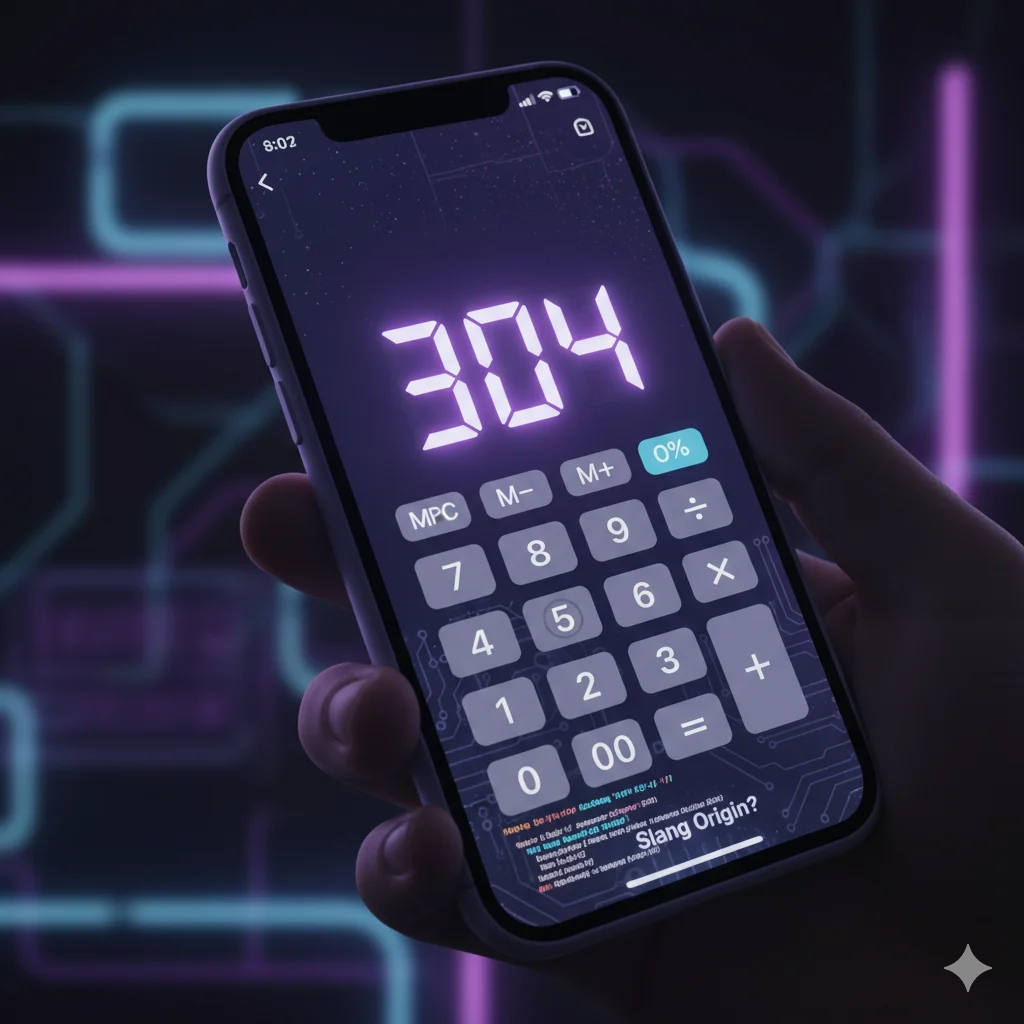If you’ve seen someone comment “She’s a 304” or “That’s 304 behavior” on TikTok or Twitter (X), you might wonder what that number means. 👀
In slang, “304” is a numeric code used to refer to a promiscuous woman, because when you flip “304” upside down, it spells “HOE” on a calculator. 😬
While the term originally started as a secretive way of name-calling online, it has since become part of Gen Z’s internet language — often used jokingly or ironically. However, it’s still important to recognize that the term carries offensive undertones and should be used carefully or avoided altogether.
🧠 The Origin of “304” — From Calculator Code to TikTok Trend
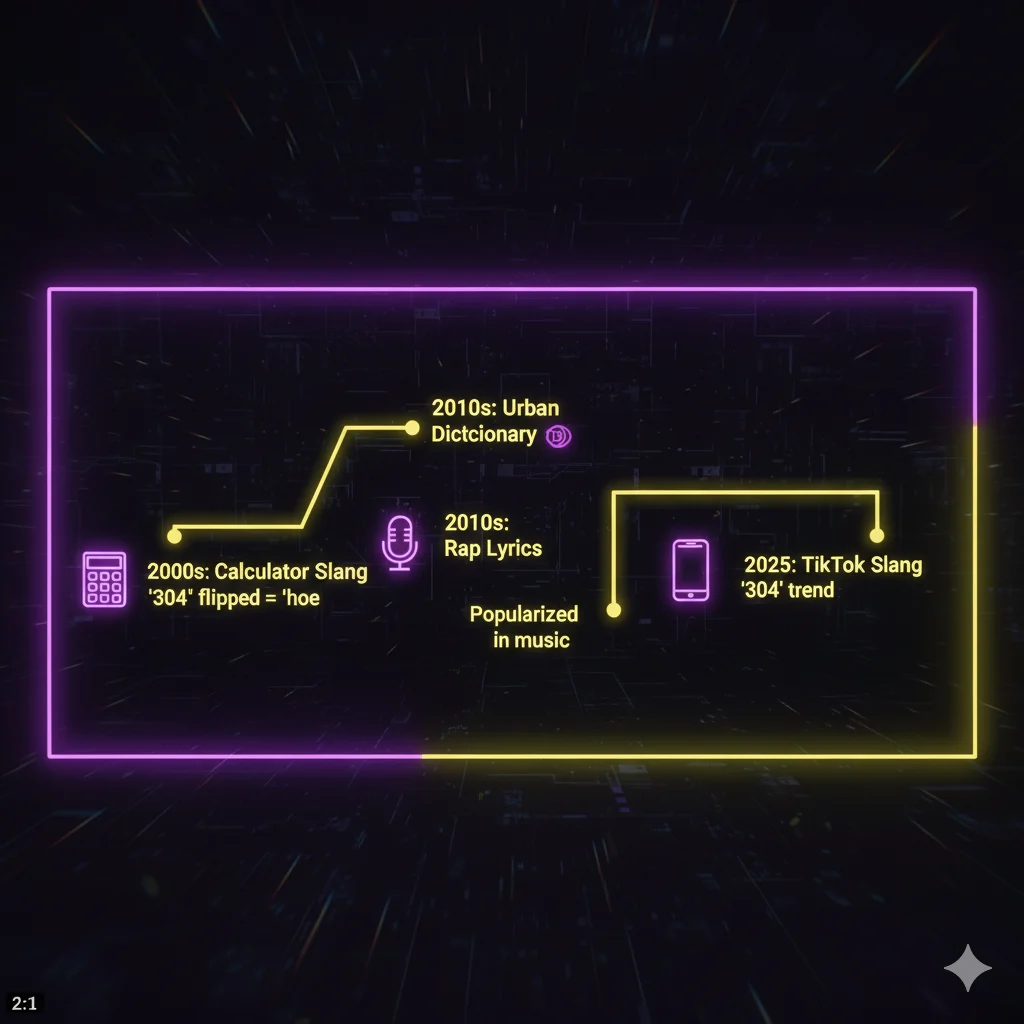
The slang “304” traces back to early 2000s text culture, when people used calculator numbers to spell words. If you type 304 and turn the screen upside down, it forms the word “HOE.”
The word’s rise in hip-hop and rap lyrics in the 2010s helped spread it further, often as a coded reference in songs. Later, it resurfaced on TikTok and Twitter, where users used “304” either to tease friends or describe certain types of content or behavior — sometimes in a humorous, sometimes disrespectful tone.
🗣️ What Does “304” Mean on TikTok?
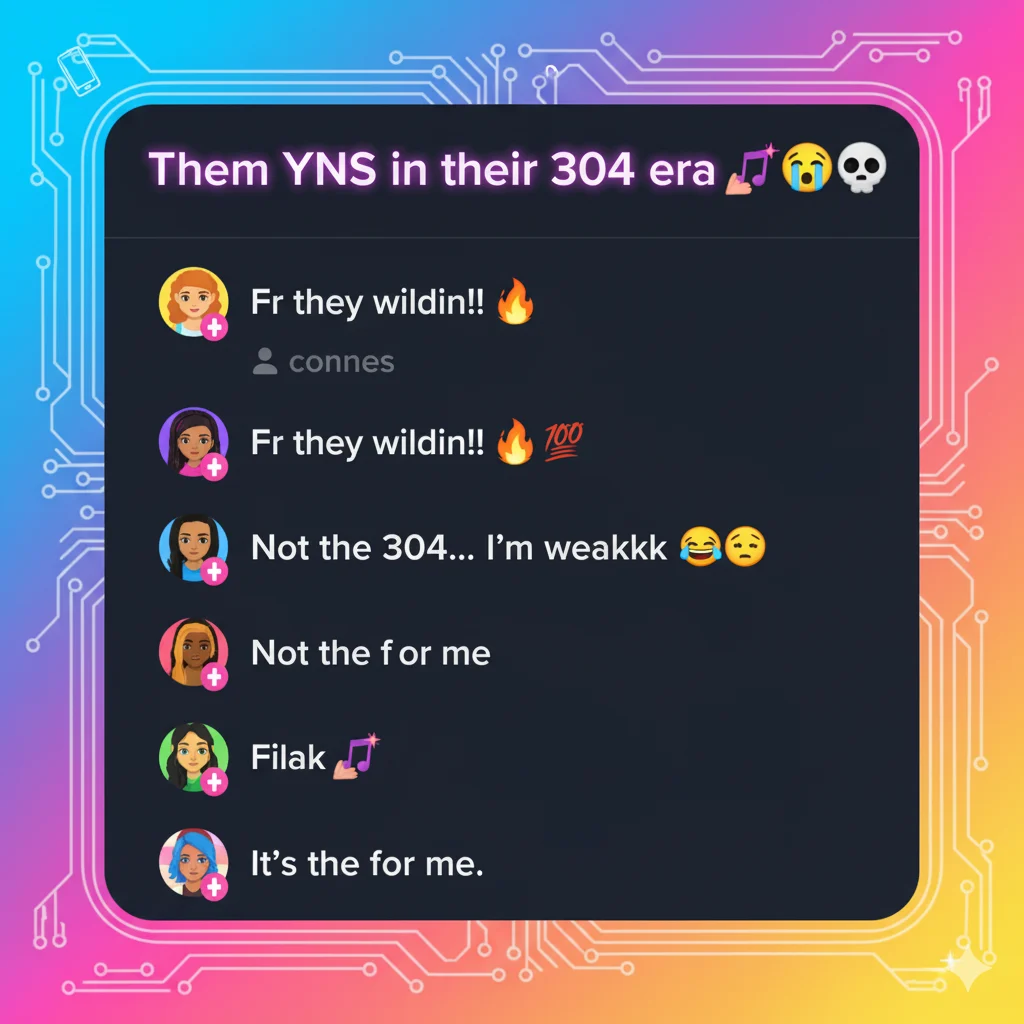
On TikTok, “304” is often used in comments or captions as a code word for a flirtatious, confident, or attention-seeking person — usually a woman.
However, tone and context matter a lot. While some users reclaim the term playfully (e.g., “Hot girls 304 season!” 😅), others still use it negatively.
🔍 Examples:
- “She’s acting like a 304 again 💅” (playful teasing)
- “Don’t call her that — 304 isn’t cool 😐” (calling out disrespect)
- “My 304 era is over, I’m peaceful now 😂” (self-irony)
The shift shows how slang evolves — words once meant as insults can be reshaped or humorized by new generations.
🎵 304 in Music and Pop Culture
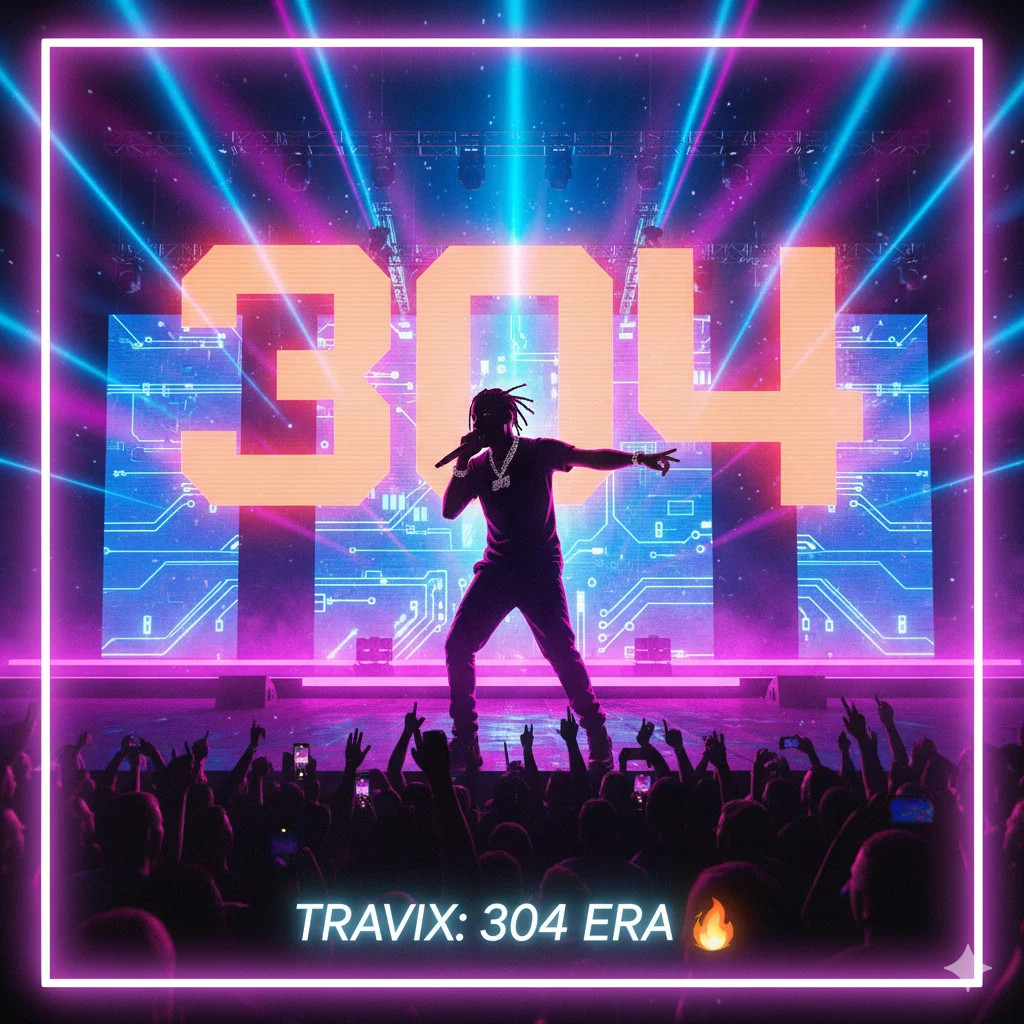
Music often fuels slang evolution, and 304 is no exception.
In hip-hop and rap, artists have used “304” as a coded or metaphorical term for someone chasing money, fame, or attention.
Example references appear in older West Coast rap tracks and modern internet remixes, often emphasizing lifestyle or hustle.
While the slang can be catchy in lyrics, it’s essential to understand that its real-world connotation can still offend — especially when used toward individuals.
⚖️ Cultural Sensitivity — Why “304” Is Considered Offensive
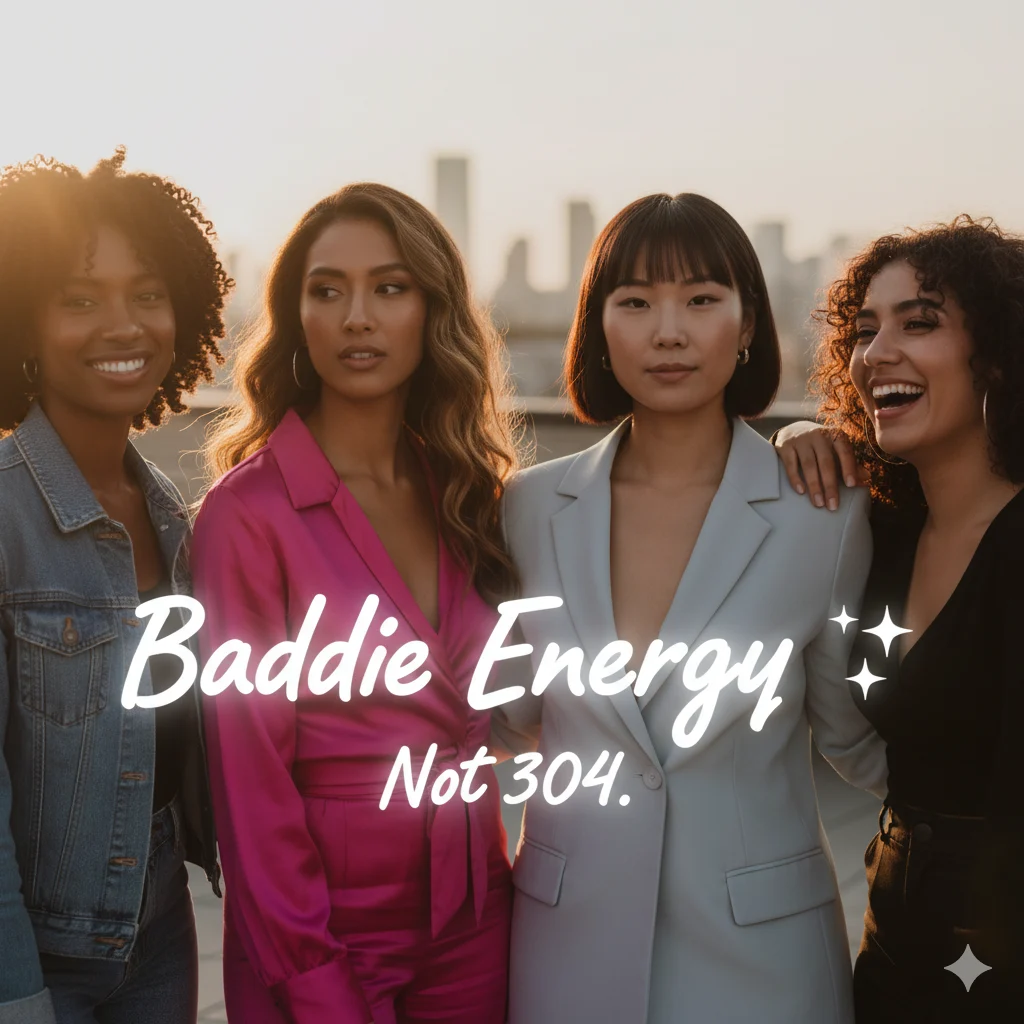
Even if the word is used jokingly online, “304” originates from a derogatory insult toward women. Using it in casual talk can unintentionally spread disrespect or reinforce stereotypes.
That’s why content creators and influencers are now encouraging respectful alternatives or humor without targeting gender or appearance.
👉 Instead of using 304, you can express the same vibe playfully with:
- “Baddie energy” 💋
- “Main character moment” 🎬
- “Glow-up era” ✨
These phrases celebrate confidence without negativity.
❓ FAQs
1. What does “304” mean in slang?
“304” is a numeric code that, when flipped upside down, spells “HOE.” It’s used as slang to describe a promiscuous person, though it’s often considered disrespectful.
2. What does “304” mean on TikTok?
On TikTok, “304” is sometimes used humorously to describe flirtatious or bold behavior — but it can also be offensive depending on context.
3. Is “304” a bad word?
Yes, it can be. The term has derogatory roots, and using it toward someone can be seen as offensive.
4. Where did “304” come from?
It originated from calculator texting, where 304 flipped upside down spells “hoe.” It spread through rap culture and later TikTok.
5. What can I say instead of “304”?
You can use positive slang like “baddie,” “confident,” or “main character energy” to keep your language respectful yet trendy.
🌟 Conclusion — The Real Meaning Behind “304”
“304” started as a simple calculator code but evolved into a viral slang term representing confidence, rebellion, and sometimes controversy.
Yet, as language evolves, it’s our responsibility to use words mindfully. What’s fun online shouldn’t hurt or disrespect others offline. 💬

Michael Smith is the creator of PikupLab.com, known for crafting engaging, SEO-smart content that connects with modern audiences.
He specializes in turning niche topics into high-ranking, reader-focused articles.

